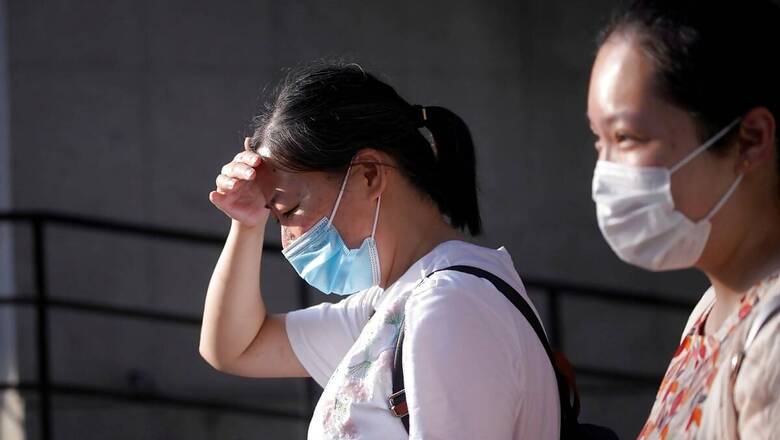
views
This summer, we’ve already experienced some very extreme temperatures and even a heatwave in some parts of the country. While everyone is trying their best to stay hydrated and cope with this weather, we all know someone who feels hotter than everyone around them ? not just now, but all the time, as a rule. Truth is, it might not be just the heat in that situation. Here are five conditions that can make you feel hot all the time:
1. Stress
Stress and anxiety can be at the root of many illnesses, both physical and mental. The hypothalamus is the part of a brain which helps in regulating the temperature of the body. When the body undergoes stress, the hypothalamus resets the body to a higher temperature. When the body is under stress, a fight-or-flight response is generated by it which can cause blood to pool to the torso and the head, making you feel warm. At the same time, due to lack of blood in the extremities, the hands and feet may feel cold.
2. Hyperthyroidism
Hyperthyroidism is a medical condition where the thyroid gland starts making more thyroid hormone than required by the body. A classic symptom of hyperthyroidism is heat intolerance. Generally, the hypothalamus sends signals to the thyroid gland which produces hormones essential for the regulation of the body temperature.
But when the thyroid gland becomes overactive, the hypothalamus is unable to send signals to the gland. This makes the thyroid gland release higher levels of the hormone, which speeds up the body?s metabolism. This speeding up of the body system makes the body feel overheated and sweaty all the time, even while sitting idle or at rest.
3. Anhidrosis
Anhidrosis is a medical condition in which the affected person feels overheated but cannot produce sweat. Since the body is unable to release sweat, it may feel overheated all the time as sweating helps in lowering the body temperature. Along with overheating, the other symptoms may involve muscle cramps, dizziness, flushing and inability to cool down. It can either affect the entire body or only a part of the body.
4. Menopause
Menopause is a stage of life in women usually seen around the age of 45 to 55 years where they stop menstruating (end of periods). When a woman reaches menopause, her ovaries stop releasing eggs which makes her unable to conceive. During menopause, a woman may experience hot flashes, reduced vaginal secretions (causing dryness), decreased bone mass, mood swings, insomnia and anxiety. Hot flashes are seen in episodes.
Hot flashes present themselves as a sudden hot feeling on the face and upper body, sweating, rapid heartbeat, dizziness, nausea, flushing (reddening and sweating) and flush chills which mark the end of the episode.
5. Food and drinks
Food items and beverages like spicy foods, caffeine and even alcohol can raise your body temperature. They raise your heart rate making you feel flushed, hot and sweaty. Many studies have reported that spicy foods include hot peppers in them which is rich in capsaicin. Capsaicin is a natural chemical that spikes up the taste buds and increases the body temperature, making you sweat and tear up.
For more information, read our article on Hyperthyroidism.
Health articles on News18 are written by myUpchar.com, India’s first and biggest resource for verified medical information. At myUpchar, researchers and journalists work with doctors to bring you information on all things health.




















Comments
0 comment